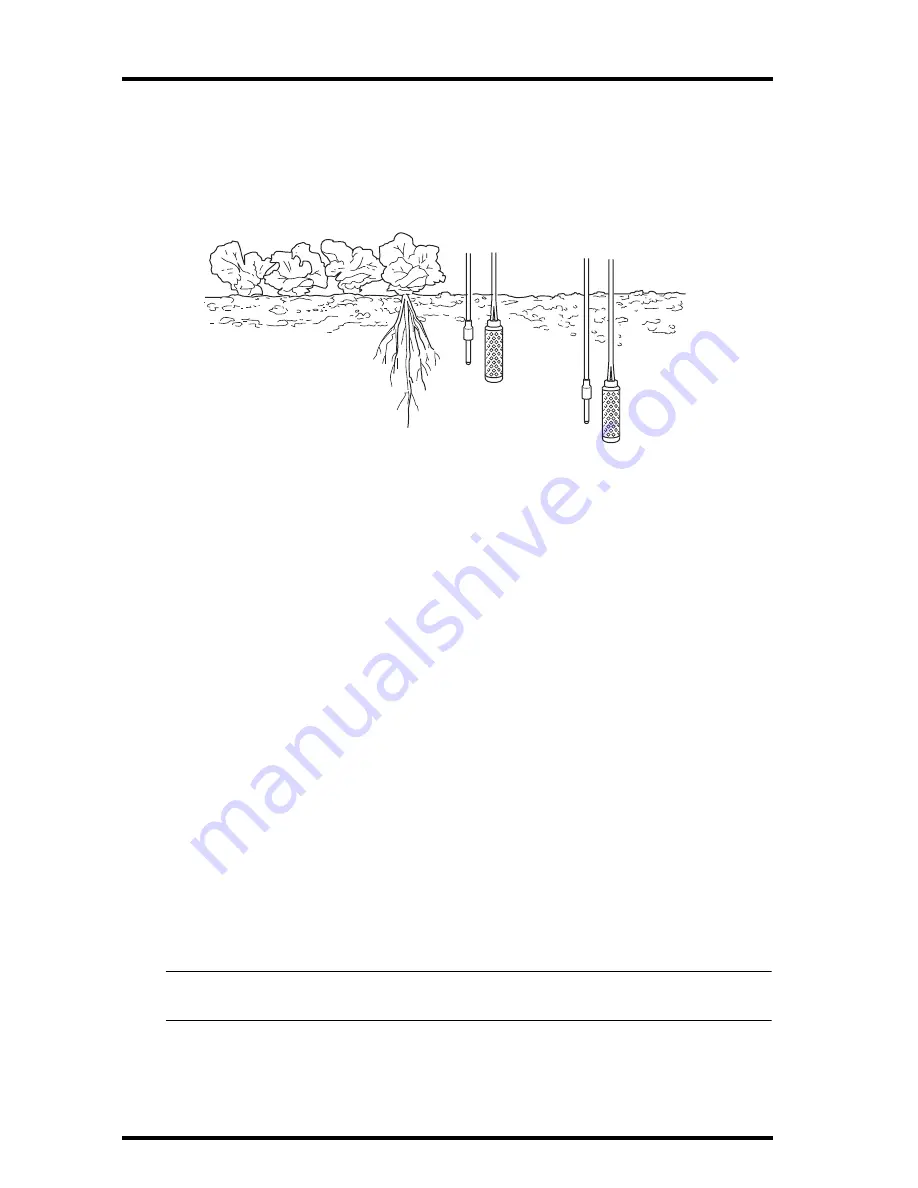
Page 12
Wireless Soil Moisture/ Temperature Station
• With coarse, shallow or layered soils, root systems may be limited in
depth.
• Guidelines on proper depths for specific crops and conditions can be
obtained from your local farm advisor.
Installation Procedure
1. Soak the soil moisture sensors overnight in water.
• Always “plant” a wet soil moisture sensor.
• If time permits, wet the soil moisture sensor for 30 minutes in the morn-
ing and let dry until evening, wet for 30 minutes and let dry overnight,
wet again for 30 minutes the next morning and let dry again until
evening. Soak over the next night and install wet. This will improve sen-
sor response during the first few irrigations or waterings.
2. Make sensor access holes to the depth required with a 7/8” diameter rod.
• Make a hole for the soil moisture sensor and a separate adjacent hole for
the temperature probe.
• For very coarse or gravely soils, an oversize hole of 1” to 1 1/4” may be
needed to prevent abrasion damage to the soil moisture sensor mem-
brane. In this case, you will need to “grout in” the sensor with a slurry
made from the sample soil to get a snug fit in the soil.
3. Always install sensors in the active root system of the crop with a snug fit in
the soil.
CAUTION:
In gravelly soils and with deeper sensors, carefully install the sensor to prevent dam-
aging the membrane.
Sensor depth
dependent on:
• crop rooting
depth
• soil texture
and depth
Co-locate
temperature probes
and
moisture sensors
Some crops need
measurement at
more than one depth
Sensors must be located in the effective root system of the crop


































